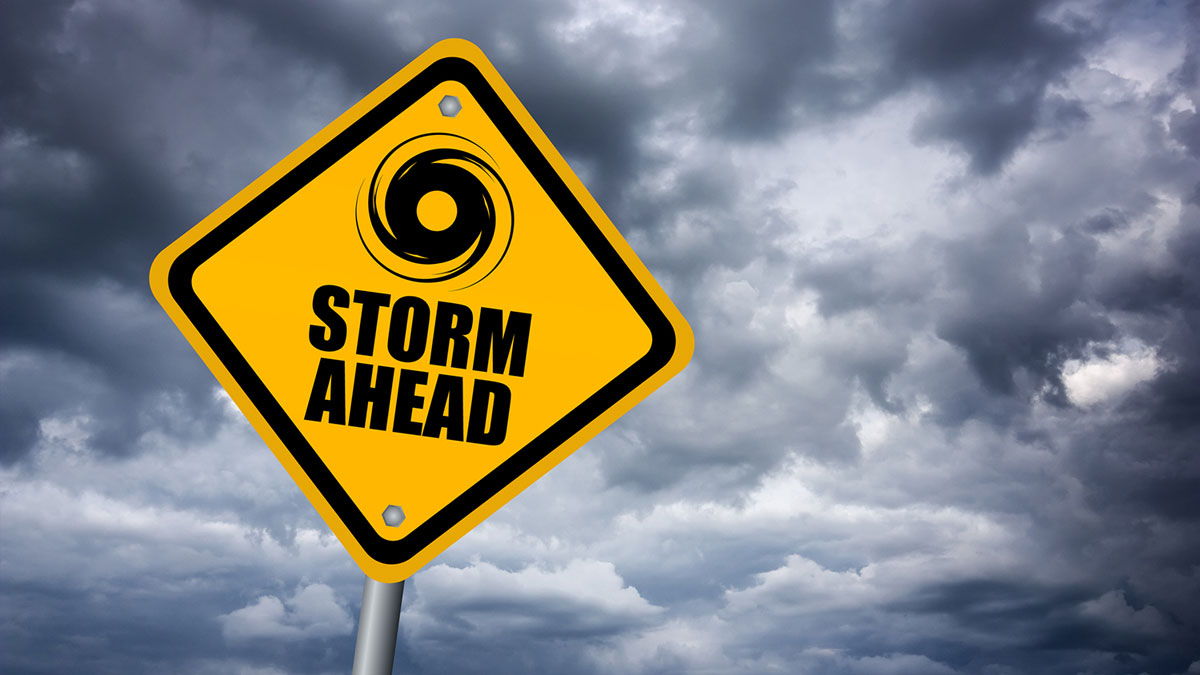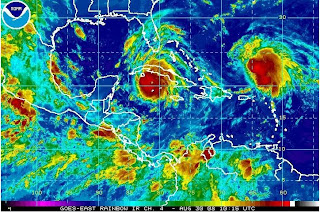If you are under a hurricane watch or warning, here are some basic steps to take to prepare for the storm:
The National Weather Service will issue a hurricane watch when there is a threat to coastal areas of hurricane conditions within 24-36 hours.
When a hurricane watch is issued, you should: If You are Ordered to Evacuate
If You are Ordered to Evacuate
Because of the destructive power of a hurricane, you should never ignore an evacuation order. Authorities will be most likely to direct you to leave if you are in a low-lying area, or within the greatest potential path of the storm. Be aware that most shelters and some hotels do not accept pets. If a hurricane warning is issued for your area or you are directed by authorities to evacuate the area:
The great majority of injuries during a hurricane are cuts caused by flying glass or other debris. Other injuries include puncture wounds resulting from exposed nails, metal, or glass, and bone fractures.
To get through the storm in the safest possible manner:
- Learn about your community's emergency plans, warning signals, evacuation routes, and locations of emergency shelters.
- Identify potential home hazards and know how to secure or protect them before the hurricane strikes. Be prepared to turn off electrical power when there is standing water, fallen power lines, or before you evacuate. Turn off gas and water supplies before you evacuate. Secure structurally unstable building materials.
- Buy a fire extinguisher and make sure your family knows where to find it and how to use it.
- Locate and secure your important papers, such as insurance policies, wills, licenses, stocks, etc.
- Post emergency phone numbers at every phone.
- Inform local authorities about any special needs, i.e., elderly or bedridden people, or anyone with a disability.
- Make plans to ensure your pets' safety.
The National Weather Service will issue a hurricane watch when there is a threat to coastal areas of hurricane conditions within 24-36 hours.
When a hurricane watch is issued, you should:
- Fill your automobile's gas tank.
- If no vehicle is available, make arrangements with friends or family for transportation.
- Fill your clean water containers.
- Review your emergency plans and supplies, checking to see if any items are missing.
- Tune in the radio or television for weather updates.
- Listen for disaster sirens and warning signals.
- Prepare an emergency kit for your car with food, flares, booster cables, maps, tools, a first aid kit, fire extinguisher, sleeping bags, etc.
- Secure any items outside which may damage property in a storm, such as bicycles, grills, propane tanks, etc.
- Cover windows and doors with plywood or boards or place large strips of masking tape or adhesive tape on the windows to reduce the risk of breakage and flying glass.
- Put livestock and family pets in a safe area. Due to food and sanitation requirements, emergency shelters cannot accept animals.
- Place vehicles under cover, if at all possible.
- Fill sinks and bathtubs with water as an extra supply for washing.
- Adjust the thermostat on refrigerators and freezers to the coolest possible temperature.
 If You are Ordered to Evacuate
If You are Ordered to EvacuateBecause of the destructive power of a hurricane, you should never ignore an evacuation order. Authorities will be most likely to direct you to leave if you are in a low-lying area, or within the greatest potential path of the storm. Be aware that most shelters and some hotels do not accept pets. If a hurricane warning is issued for your area or you are directed by authorities to evacuate the area:
- Take only essential items with you.
- If you have time, turn off the gas, electricity, and water.
- Disconnect appliances to reduce the likelihood of electrical shock when power is restored.
- Make sure your automobile's emergency kit is ready.
- Follow the designated evacuation routes—others may be blocked—and expect heavy traffic.
The great majority of injuries during a hurricane are cuts caused by flying glass or other debris. Other injuries include puncture wounds resulting from exposed nails, metal, or glass, and bone fractures.
To get through the storm in the safest possible manner:
- Monitor the radio or television for weather conditions, if possible.
- Stay indoors until the authorities declare the storm is over.
- Do not go outside, even if the weather appears to have calmed—the calm "eye" of the storm can pass quickly, leaving you outside when strong winds resume.
- Stay away from all windows and exterior doors, seeking shelter in a bathroom or basement. Bathtubs can provide some shelter if you cover yourself with plywood or other materials.
- Prepare to evacuate to a shelter or to a neighbor's home if your home is damaged, or if you are instructed to do so by emergency personnel.



Comment